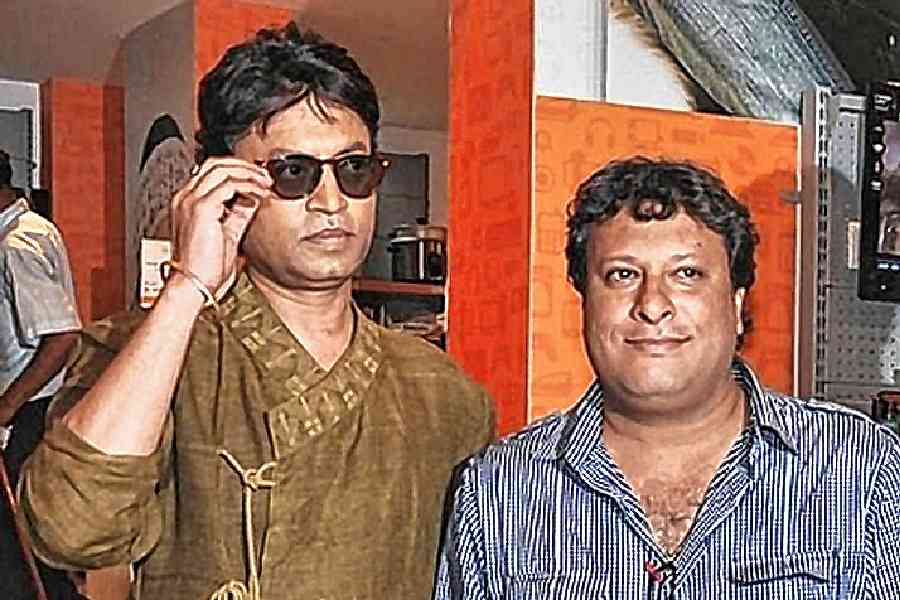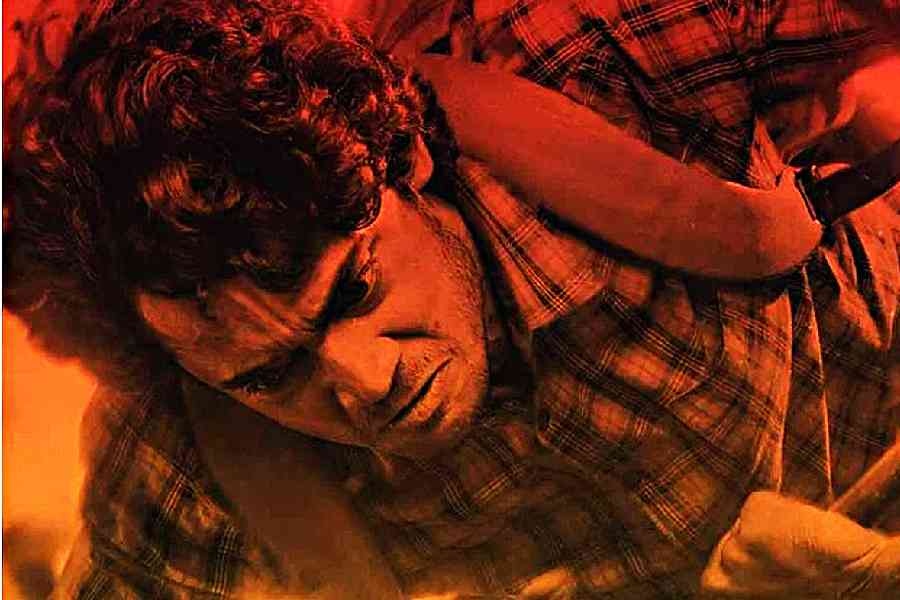Tigmanshu Dhulia revisits his first film Haasil in his web series Garmi. Now streaming on SonyLIV, Garmi looks at the volatile world of student politics in Bhopal, with Dhulia mostly working with new faces in this nine-episode series. The Telegraph chatted with the film-maker on his new series, his memories of Haasil (which marked his first time working with the late Irrfan) and what the youth of India wants today.
What prompted the idea of Garmi?
I wanted to revisit my first film, Haasil. I was also interested in generally trying to know what the youngsters are feeling today. What are they going through now? Because after 20 years (since Haasil), a new generation has come up. A lot of water has flown under the bridge. With that idea in mind, I met people — professors, student leaders and students in general... and I kind of figured out that a lot has changed because society has changed in the last 20 years.
So I said: ‘Okay, let’s again visit student politics and, more than that, student life.’ I wanted to look at student life in a place (Bhopal, Madhya Pradesh) which is quite volatile and active. When I say ‘active’, I mean that everybody reacts to whatever happens. Sometimes, people become so complacent that they don’t react. But this is a place where people are constantly reacting.
I wanted to examine the shift in morality... both good and bad, the value system.... The story is not the same as Haasil, it is different. I am trying to explore this world from a new perspective.
So what’s been the biggest shift in these two decades? Was there anything that shocked you?
Nothing was really shocking. That’s because when society changes, then everything changes... film-making changes, your food habits change.... We have been running a lot after wealth. I think it is greed which has changed everything.
There is a lot of divisive politics at play in present-day India. Does that also reflect in the lives and thoughts of students now?
Politics has always affected students. Student unions came into being around 1905. All big political events in the history of our country started from students because students have the potential to be a mobilised force for every political party... it’s not something new.
I asked this question because the practice of othering has become very pronounced in our country in the present political regime....
That is true. The kind of politics that is playing out at the national level gets reflected in the student politics at the local level as well.
What was it like during your time when you were a student in Allahabad? Were you also actively involved in student politics?
I was involved to some extent, but I was more inclined towards the cultural aspect of student life. I used to do a lot of theatre, I would be involved with music....

Tigmanshu Dhulia (right) with Irrfan
Coming back to Garmi, what were the challenges of making the series?
It was a new experience to work with newcomers. All of them were new actors of ages 22-23. Most of the cast on the show were facing the camera for the first time. Unke saath kaam karne mein mazaa aaaya, aur thoda gussa bhi aaya (laughs). The concentration levels of most youngsters are very less these days... they have so many distractions today.
What is the student population of India most angry or frustrated about today?
The fact that those in public service, whether it’s a politician or a bureaucrat, don’t do their jobs properly. They are supposed to serve the people... jan seva is their work... but we all know what they do.... This is what irks the youth most today.
Rewinding to Haasil, what are your fondest memories from making that film?
Every moment is very close to my heart. It was my first film, so that level of excitement and even that level of naivete is not there anymore. Also, it was a great collaboration between me and Irrfan... Haasil made both of us. That film will always remain very, very, very special to me.
What must a story have in it to inspire you to tell it?
It has to get me thinking, it has to motivate me and make me think if there is enough material to make a movie. It must say something, it must inspire me and it should tell me something about the society during the period it is set in.
Anything that you watched recently that impacted and inspired you?
The Banshees of Inisherin... I really loved that film. The film works on many levels... it works as a fable, you can look at it from an environmental point of view or you can just look at it as a story. It’s beautiful....
And I believe you didn’t warm to this year’s big Oscar winner Everything Everywhere All At Once...
I didn’t like it! I saw 15 minutes of it and I realised that this is meant for the Chinese market. It’s a film that says too much of: ‘Watch me... watch my style....’ It’s a show-off kind of film.











